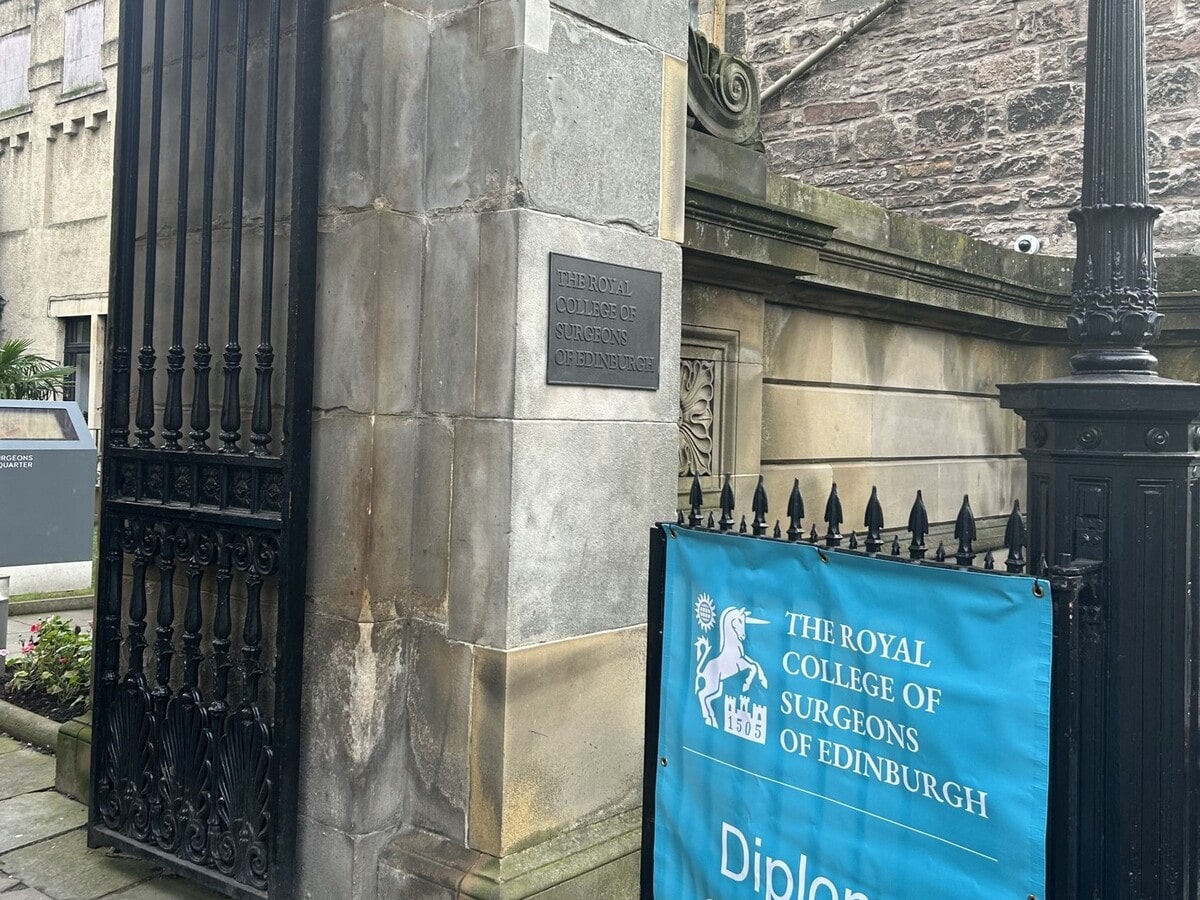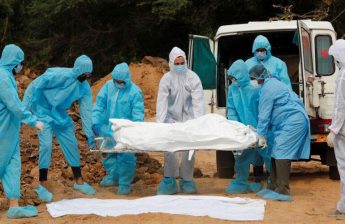In response to a press statement by the Council of the Malaysian Association for Thoracic and Cardiovascular Surgery (MATCVS), the President of the Malaysian Medical Council (MMC) issued a press statement on March 25, 2024, which stated “The MMC Denies That The Fellow Of Royal College Of Surgeons Of Edinburgh (RCSEd) In Cardiothoracic Surgery Was At Any Time Recognised By The MMC.”
A search on the website of the National Specialist Register for cardiothoracic surgery revealed that there are 19 Fellows of the Royal College of Surgeons of Edinburgh (FRCSEd) and another nine Fellows of the Royal College of Surgeons of Edinburgh (FRCSEd Cardiothoracic/CTH).
This article provides information about specialist registration in the United Kingdom and Malaysia, in particular about surgical specialist registration and qualifications in cardiothoracic surgery from the RCSEd.
Specialist Registration In The United Kingdom
Specialist registration in the United Kingdom and the Republic of Ireland are relevant, as many Malaysian specialists had and continue to undergo specialist training in the UK and Ireland.
Previously, any doctor who wanted to do cardiothoracic surgery previously had to qualify in general surgery and be admitted as a Fellow of one of the Royal Colleges of Surgery (FRCS) in the UK, i.e. FRCS England, FRCS Edinburgh, FRCS Glasgow, or/and Ireland (FRCS Ireland), prior to proceeding to cardiothoracic surgery.
The FRCS then was attained by passing the examinations of the individual Colleges.
This was also the case with other surgical subspecialties, which subsequently became specialties, like neurosurgery, orthopaedic surgery, otolaryngology, paediatric surgery, plastic surgery, urology, and vascular surgery.
The General Medical Council (GMC) established its Specialist Register on January 1, 1997. Since then, anyone who wants to be appointed as a consultant in the National Health Service (NHS) must be listed on the Specialist Register. The Irish Medical Council (IMC) has similar requirements.
The introduction of structured specialist training in the UK and Ireland, which usually is of six to eight years’ duration, depending on specialty, led to changes in specialist registration requirements.
In response to the requirements of the GMC and IMC, the Royal Colleges of England, Edinburgh, Glasgow, and Ireland established the Intercollegiate Specialty examination.
Prior to being permitted to sit the Intercollegiate Specialty examination, the surgical trainee has to pass Parts A and B of the Membership Examinations of the RCS (MRCS).
Upon passing the Intercollegiate Specialty examination, the trainee can join any of the Royal Colleges as a Fellow.
In previous years, the Certificate of Completion of Training (CCT) of GMC-approved training programmes was awarded by the GMC’s Postgraduate Medical Education and Training Board (PMETB, 2005–10) and the Specialist Training Authority (STA, 1996–2005). Since then, the CCT has been awarded by the GMC.
Other requirements need to be complied with before any doctor can be placed in the GMC Specialist Register. They include evidence of generic professional capabilities in practice (CIPs); specialty specific CIPs; structured referee reports; evidence of training, qualifications, employment, skills and experience; continuing professional development/ conferences; research; medical education and training; quality improvement; management and leadership; and any other relevant information.
There are various pathways to placement in the GMC’s Specialist Register:
- Certificate of Completion of Training (CCT): Doctors with a CCT have completed an approved training programme in the UK and are eligible for entry onto the Specialist Register. We have approved and quality assured training programmes in 65 specialties.
- Combined Programme: For doctors who joined an approved specialist training programme at a later starting point, having already obtained some of the CCT curriculum competencies from previous non-approved training posts. These doctors are awarded a CCT certificate upon successful completion of training.
- Portfolio Pathway Specialist Registration: The process by which doctors who have not trained in an approved programme can demonstrate they hold the knowledge, skills and experience required to practise as an eligible specialist in the UK and join the Specialist register. These doctors are awarded a Certificate of eligibility for specialist registration (CESR) certificate.
- Portfolio Pathway Through Academic Or Research Medicine: For doctors who have not followed a full approved GMC training programme, but have knowledge, skills, and experience in a very specific area. Applicants must demonstrate that they have academic or research and clinical skills equivalent to those of a consultant in the UK health services. These doctors are awarded a Certificate of eligibility for specialist registration (CESR) certificate if successful in their application.
- Portfolio Pathway In A Non-CCT Specialty: Applications via Portfolio pathway made in a specialty that we haven’t approved a CCT curriculum in. Doctors must demonstrate that their knowledge and skills are equivalent to the standards required of a consultant in the UK health services. They must have a specialist medical qualification or six months training in a non-CCT specialty from outside the UK. These doctors are awarded a Certificate of eligibility for specialist registration (CESR) certificate if successful in their application.
- Relevant European Qualification – Specialist: For doctors who hold a relevant specialist European Qualification which meets the current GMC criteria for recognition
- Reassessments Under The General System For The Recognition Of Specialist Training: Doctors who have previously been unsuccessful in an application for specialist registration under the general system for assessment. These doctors need to show they have gained the same level of skills and knowledge required by the relevant CCT curriculum.
- Qualifying Swiss Specialist Applicants: For doctors who are eligible to apply as a qualifying Swiss applicant for specialist registration under the Swiss Citizens Rights Agreement.
In short, a surgical trainee has to pass the Royal Colleges of Surgeons Intercollegiate Specialty examination; be admitted as a Fellow of one of the Royal Colleges of Surgery; obtained the CCT of the GMC or Certificate of Specialist Doctor (CSD) of the IMC; and provide other required evidence before the trainee can be placed in the GMC or IMC’s Specialist Register.
Specialist Registration In Malaysia
The Academy of Medicine (AMM), whose members are all specialists, established its Specialist Register (AMMSR) in November 2000. It comprised a database of AMM members with their specialist status.
The AMMSR was made available on the AMM website for public reference and inspection.
Ministry of Health (MOH) specialists were gazetted with details about their specialty status.
The impetus to establish a National Specialist Register (NSR) led to the MOH and AMM establishing a joint committee to address the procedures and guidelines for credentialling the specialists.
The MOH agreed that the NSR be initiated and maintained by the AMM. The NSR was launched by the then-health minister on August 24, 2006.
The NSR was overseen by a National Credentialling Committee (NCC) chaired by the health director-general, who was and is also the president of the MMC. Its membership comprised four representatives each from the MOH and AMM, and a single representative from the MMC.
The NCC provided standards of practice for specialist practice and directed the maintenance of the NSR. The NCC chairman appointed members of the specialist subcommittees (SSC) for each of the 47 specialties in the NSR.
The SSCs’ role was to develop criteria for recognition in their specialties, to evaluate applications against the stipulated criteria and to make appropriate recommendations to the NCC.
A dedicated secretariat was established at the AMM to maintain the NSR and provide administrative support.
The Medical (Amendment) Act was passed by Parliament and received royal assent on 5 September 2012. Sections 14A-C and 42(6) of the amended Act provided for the establishment of a NSR. Section 42(6) states:
Any person who, on or before the date of coming into operation of this Act:
- Had or been registered as a specialist in a registry of specialists.
- Had been appointed as a specialist by the Director General.
shall be deemed to be registered as a specialist under this Act.
The MMC held several meetings with stakeholders to update its 2001 Institutional Memory guidelines which were used in its evaluation of applications for registration. The Registration Procedures and Guidelines for provisional, full and specialist registration, and temporary practicing certificate were adopted by the MMC on 18 December 2012. This document was revised by the MMC in 2013 and 2015.
The Medical (Amendment) Act came into operation on July 1, 2017. The MMC at its meeting on November 21, 2017 adopted the NCC list of recognised specialist qualifications and various administrative measures related to the NSR.
Until the day, I left the MMC as an elected member in July 2022, the following were the pathways for placement in the MMC Specialist Register:
- Specialty qualifications in the NCC list adopted by the MMC (NSR list).
- Those whose qualifications were not in the MMC NSR list were considered on an individual basis. The assessment standard was that of the Masters programme of the specialty in the local universities. If there was no such programme in the local universities, the assessment standard used was that of the Royal Colleges in the UK, Ireland, or Australasia.
The MMC was cognisant of the fact that its NSR list was not exhaustive, that there were some Malaysians who had and continue to have specialty training in “non-traditional” countries, and that the public should not be deprived of their skills and experience.
There was no requirement for CCT or CSD as in the UK or Ireland respectively.
If the MMC refuses to register an applicant, the reasons for the refusal, which have to be objective, are documented. This was to comply with Section 14C of the Medical Act which states:
(3) The Council may refuse to register any such person as it thinks fit.
(4) Where the Council refuses to register the applicant under subsection (3), the Council shall immediately serve a notice of refusal to the applicant together with the reasons thereof (emphasis added)
Subsequently, the MMC updated its NSR Registration Procedures and Guidelines dated 21 November 2023 (“2023 guidelines”). Under the 2023 guidelines, the pathway for doctors whose qualifications were not in the MMC’s NSR list was removed.
The 2023 guidelines also state that the applicant:
- Must have completed supervised post qualification work experience of not less than one year
- May reapply for NSR registration six months after the date of the MMC’s refusal.
The process for applications for placement in the MMC’s NSR was and still is:
- All applications are considered by the relevant Specialty Sub-Committee (“SSC”) comprising senior members of the speciality/
- The SSC’s recommendations are considered by MMC Evaluation Committee.
- The MMC Evaluation Committee’s recommendations are considered by MMC which decides whether an applicant can be placed in the MMC’s NSR.

Dr Milton Lum is a Past President of the Federation of Private Medical Associations, Malaysia and the Malaysian Medical Association. The views expressed do not represent that of any organisation the writer is or was associated with. No responsibility is assumed by the writer for any injury and/ or damage to persons or property in respect of anything or the consequences of anything done or omitted to be done by anyone in reliance, whether wholly or partial, upon the whole or any part of the contents of this article. If legal advice is required, the services of a legal counsel versed in medical law should be sought.
- This is the personal opinion of the writer or publication and does not necessarily represent the views of CodeBlue.








